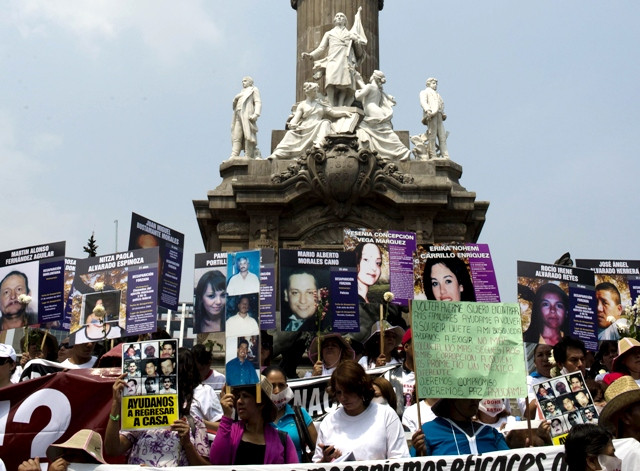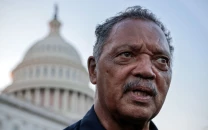Mexicans take search for loved ones in own hands
Families of missing people in Mexico City protest against 'indolence' of investigative authorities.

Victor Rodriguez was 28 years old when he disappeared in the northern state of Coahuila in 2009. Employed by a company that imports cars, Rodriguez was returning from a work trip with his boss and a friend.
"We knew they were leaving May 11 at 1:00 am and were to reach Tijuana the next day, but we have heard nothing from them to this day," said his mother, Adriana Moreno.
His family reported him missing, but the case went nowhere.
"You have to do the investigating. You become the detective. Whatever you can come up with that you can turn over to the authorities is the only thing that will advance a case," Moreno said.
"They aren't going to return your calls, they aren't going to communicate with you. You have to stay on top of it."
Her criticism of police inaction has become a common refrain here.
"They don't do anything, either from fear or collusion or both those things," said Juan Lopez, who advises Forces United for Our Disappeared in Mexico, a group that represents hundreds of families whose loved ones have disappeared.
As Mexico celebrated Mother's Day on Thursday, about 150 members of the organization converged on Mexico City from different parts of the country to protest against the 'indolence' of the investigative authorities.
More than 50,000 people have been killed in drug-related violence in Mexico since President Felipe Calderon launched a military-led campaign against the country's powerful drug cartels, according to a toll maintained by the press.
But there is no similar count of the number of people who have disappeared.
In April 2001, the National Human Rights Commission said there were more than 5,000 cases of missing persons since 2006, but Lopez said the numbers could be twice as high.
Gabriela Mejia is looking for her two brothers, Carlos and Ricardo, who were taken away by masked gunmen along with seven other men who were installing antennas for a telephone company.
"We filed all the complaints and they told us we should provide a line of investigation," said Mejia. But since the family was unable to say who might have kidnapped the brothers, the case was shelved.
Lopez emphasized that his group has met several times with Interior Minister Alejandro Poire, Attorney General Marisela Morales and even on a couple of occasions with Calderon.
"They half receive us, half condole with us, but none of the missing are found," he said. "They don't know what to do. They are paralyzed, if you consider that in half the national territory, those who govern are not the government but organized crime."
Lopez warned that some of the disappeared are "youths who are being enlisted against their will by organized crime, in a kind of draft."
Marco Antonio Villanueva clings to that possibility. For the past year, Villanueva has been looking for his father and brother, farmworkers in the state of Guerrero, who went to pick up a vehicle at the US-Mexico border and then on their return vanished without a trace in Coahuila.
Four months ago, authorities in Coahuila rescued 41 people who had been kidnapped by drug traffickers.
"They didn't hold them to extort money but to make them work for the Zetas cartel," Villanueva said, referring to one of the country's most ruthless drug gangs.
"I want to believe that is what happened to my relatives, that they aren't dead and that I'll find them at any moment," he said, adding: "I've stopped asking the authorities because they won't even take my calls anymore."



















COMMENTS
Comments are moderated and generally will be posted if they are on-topic and not abusive.
For more information, please see our Comments FAQ